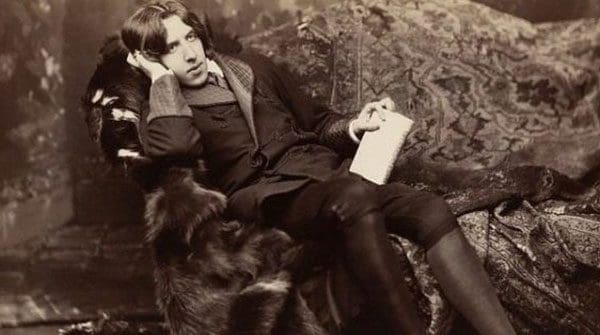 Once upon a time, I had an uncomplicated view of capital punishment. I was against it. Period.
Once upon a time, I had an uncomplicated view of capital punishment. I was against it. Period.
And a reading of the poem The Ballad of Reading Gaol by Oscar Wilde could reduce me to tears. Even now, with a much more nuanced view of the subject, the power of the language still moves me.
Consider this, perhaps the most famous verse:
Yet each man kills the thing he loves
By each let this be heard,
Some do it with a bitter look,
Some with a flattering word,
The coward does it with a kiss,
The brave man with a sword!
 |
| Related Stories |
| The ignominious end of the Ottoman Empire
|
| The assassination of Sir Henry Wilson Ireland’s Sarajevo?
|
| Richard Nixon’s California embarrassment
|
Of course, it’s nonsense to equate unkindness or thoughtlessness with the act of murder. But that’s on an intellectual level. Emotionally, Wilde’s formulation reaches out and grabs you.
First published in 1898, the poem’s subject is the execution of Charles Thomas Wooldridge, a trooper in the Royal Horse Guards. On July 7, 1896, Wooldridge was hanged at Reading Gaol for the brutal murder of his estranged wife. Wilde was an inmate there at the time, serving a two-year sentence for “gross indecency.”
The poem makes no attempt to argue the case for Wooldridge’s innocence. Nor could it.
Believing his wife was having an affair, Wooldridge went to her lodgings with a razor. There, after a violent argument that ended on the street, he slashed her throat.
Wilde’s journey to Reading was also the stuff of tragedy.
Oscar Wilde was an Anglo-Irish playwright, poet and novelist. He was born in Dublin in 1854 and educated at Trinity College and Oxford. His novel The Picture of Dorian Gray made its debut as a magazine story in 1890 and was published in book form the following year.
Then came the famous plays: Lady Windermere’s Fan (1892), A Woman of No Importance (1893), An Ideal Husband (1895) and The Importance of Being Earnest (1895). Commercially, Wilde was at the top of his game and the money rolled in.
However, there was a problem. Although Wilde was married with two children, he was also gay. And his passion partially manifested itself in the pursuit of rent boys. “It was,” he said, “like feasting with panthers; the danger was half the excitement.”
There’s always the temptation to interpret the past in contemporary terms, something that scholar Nicholas Frankel cautions against regarding whether Wilde thought of himself as a homosexual. Discourse in the 21st century may be rife with the language of “sexual identity,” but Frankel has this to say about late Victorians: “Sex – whether sanctioned or illicit – was something people engaged in, but it wasn’t yet seen as an expression of one’s sexuality.”
Still, Wilde knew where his interests lay. He expressed it succinctly after his release: “A poet in prison for loving boys loves boys.”
The peculiar thing about Wilde’s downfall is that it was unnecessary. He was the casualty of his own foolishness.
Enraged at Wilde’s relationship with his son, the Marquess of Queensberry left his calling card at Wilde’s London club on February 18, 1895. Inscribed “For Oscar Wilde, posing sodomite,” it constituted a public accusation of behaviour that was illegal at the time.
Wilde could have ignored it. Instead, he launched a criminal libel prosecution against Queensberry. The stakes were dramatically raised, and Wilde lost control of events.
Queensberry’s only legal defence was to prove that his accusation was true. So he engaged private investigators to find evidence, which they quickly did.
At trial, Queensberry’s defence announced that it had several male prostitutes who would testify to Wilde’s behaviour. Accordingly, Wilde’s case collapsed. Subsequently arrested, he served two years of hard labour for “gross indecency.”
On his release in 1897, Wilde left for France, never to return to the United Kingdom. He died destitute in Paris in 1900.
Having started with The Ballad of Reading Gaol, I’ll end the same way. Referring to the practice of burying executed murderers with quicklime in an unmarked grave, the third-to-last stanza drives the image home:
In Reading gaol by Reading town
There is a pit of shame,
And in it lies a wretched man
Eaten by teeth of flame,
In a burning winding-sheet he lies,
And his grave has got no name.
Whatever one’s view of Wooldridge’s fate, the description is poignant stuff.
Pat Murphy casts a history buff’s eye at the goings-on in our world. Never cynical – well, perhaps a little bit.
For interview requests, click here.
The opinions expressed by our columnists and contributors are theirs alone and do not inherently or expressly reflect the views of our publication.
© Troy Media
Troy Media is an editorial content provider to media outlets and its own hosted community news outlets across Canada.

